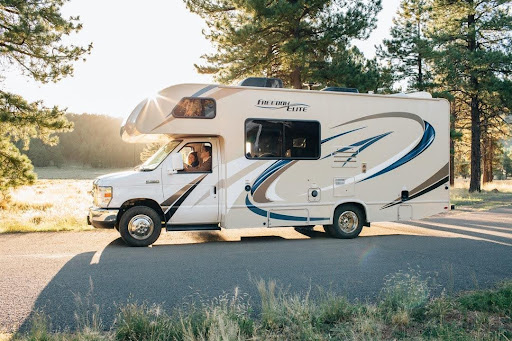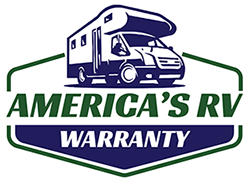
Shopping for an RV can be a thrilling but overwhelming experience. The ideal motorhome will accommodate all your needs without breaking the bank or requiring constant maintenance. But finding the perfect fit can be challenging with so many options on the market. It’s easy to get lost in endless research as you go down the rabbit hole of exploring different models, features, and accessories.
The type of engine is one of the most important factors to consider. Spend a few minutes browsing online RV groups, and you’ll likely discover RV enthusiasts hotly debating the merits of gas versus diesel engines. Each kind has pros and cons, so it’s essential to weigh your options carefully. This article provides an in-depth comparison to help you decide whether to buy a diesel or gas RV.
Price is the number one consideration for many RVers. After all, you want to make sure you have enough money left to hit the road after you pick out your new vehicle.
Gas motorhomes cost significantly less than their diesel counterparts. For example, a Class A motorhome — the largest size — may cost $75,000 with a gas engine but $150,000 with a diesel one. As a result, RV shoppers on a budget often choose a gas motorhome.
Many additional expenses will affect the lifetime cost of your RV and may make diesel or gas a smarter investment.
Fuel is one of the biggest recurring costs for all RV owners. Gas and diesel prices fluctuate over time, but gas always costs less than diesel. This price difference can be substantial, especially if you have a big gas tank that you must fill up frequently. Say you have a 40-gallon gas tank, and gas is $2.89 and diesel is $3.97 — you’ll pay $115.60 to refuel a gas motorhome and $158.80 for diesel.
You should also contact your insurance agent to get estimates for diesel and gas RVs. Several factors affect insurance costs, including your driving experience and the RV's mileage.
A gas engine typically has more horsepower, so it can accelerate faster. You might prefer this type of engine if you spend a lot of time weaving through traffic in busy urban areas and merging onto highways.
A diesel-powered engine is more like a reliable draft horse than a speedy Thoroughbred. This type of RV tends to excel in hilly and remote terrain. As a result, it’s a good choice if you’re an avid boondocker or a weekend warrior who travels to the mountains often. A diesel pusher is also quieter to drive because the engine is located at the rear of the RV.
A diesel RV will cost more to fill up at the pump, but this type of engine is typically more fuel efficient. For example, a diesel-powered Class A motorhome gets 7-13 miles per gallon (mpg) on average, while a gas-powered one gets 6-10 mpg. If you frequently take long road trips or live in your RV year-round, a diesel engine’s fuel efficiency may offset the higher cost per gallon.
Dealers and mechanics typically charge more to service RVs with diesel engines because they require specialized knowledge and tools. For instance, an oil change in Washington state may only cost $170 for a gas motorhome, but $450 to $750 for diesel — though you’ll need to change the oil less frequently for a diesel RV. You may be able to reduce these costs by learning how to maintain your vehicle yourself.
It’s important to note that diesel RVs tend to require less overall maintenance than gas RVs. As a result, a diesel RV can be cheaper to maintain over the long term, even if the cost per service visit is higher.
Additionally, the Environmental Protection Agency (EPA) requires certain diesel-powered RVs to have diesel exhaust fluid (DEF) systems to reduce harmful fossil fuel emissions. RV owners must replenish the fluid and replace the DEF filters regularly to avoid clogging the system.
A diesel engine is the clear winner when it comes to durability. A properly maintained diesel engine has a lifespan of 400,000 miles or more, while a gas engine typically lasts 150,000 to 200,000 miles.
Owners often want to bring a passenger vehicle or trailer along on their RVing adventures. A diesel motorhome generates more torque and usually has better towing capabilities than a gas RV. If you only want to tow light items like jet skis, you can likely get by with a gas-powered motorhome. However, you may consider a powerful diesel pusher if you need to tow a heavy boat or car.
Gross Vehicle Weight Rating (GVWR) is the maximum weight an RV can carry. This number includes the weight of the RV, fuel, cargo, accessories, and towed vehicles or trailers. Diesel RVs have more powerful engines, so they have higher GVWRs. For example, Class A diesel RVs have an average GVWR of 25,000 to 40,000 pounds, while gas-powered Class A RVs are only rated for 16,000 to 22,000 pounds.
Brakes vary by class and engine type. Class A diesel RVs typically have air brakes, which use compressed air to quickly halt heavy vehicles. Smaller diesel RVs and gas-powered RVs of all sizes tend to use hydraulic disc brakes. Air brakes cost more to service and require more knowledge to replace, adding to the expense of owning a diesel RV.
Diesel engines are more durable and require less maintenance, so they’re often highly sought-after by RVers. As a result, a diesel RV has a higher resale value than an equivalent gas-powered RV.
Diesel and gas engines both have loyal enthusiasts, but RV lovers may soon have a third option. Winnebago recently announced the creation of the eRV2, an all-electric, zero-emission prototype. This innovative RV may let owners have more sustainable adventures in the near future.
No matter which option you choose, consider adding extra protection with an ARW extended warranty. We’ll help you cover unexpected repairs for your engine, drivetrain, and other mechanical components. Get a free quote today.
